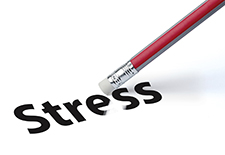 February is American Heart Month, and if you don’t think heart disease affects your job or career, think again.
February is American Heart Month, and if you don’t think heart disease affects your job or career, think again.
Cardiovascular disease and strokes create an economic burden for employers and employees alike. The American Heart Association (AHA) says that the total economic cost of heart disease in America in 2011 was $320 billion.
Medical costs of heart disease continue to grow, and by 2030 the costs associated with cardiovascular and stroke issues are expected top $918 billion.
What does this mean for you? In 2012, heart patients spent on average $4,349 on medical care due to heart-related issues, according to healthcare research organizations. The average hospital stay for a heart patient costs $20,758.
Staying Healthy
So how can you protect yourself from heart disease and prevent work loss or financial burden? According to the AHA, you can take several steps to improve your health and heart. Getting screened is important, and with health care so easily accessible, there’s no better time to get screened for blood pressure, diabetes, cholesterol, and more. Eating right also helps cut your risk of cardiovascular disease. Incorporate healthy additions to your meals, like fruits, vegetables, and whole grains, and grill instead of frying when you can.
Cut Out the Stress
While these are steps you can take at home, what can you do at work to help reduce your risk of cardiovascular disease? One of the biggest factors in heart disease is stress. Stress not only makes you feel miserable, but it can do incredible damage to your long-term health. Meditation, relaxation techniques, counseling, and 30 to 60 minutes of exercise at least three days a week are proven methods to reduce stress.
Although it can be hard to pinpoint exactly what is causing your stress, there are common elements in our daily lives that may be to blame. Maybe you can’t say no to someone, even if what they are asking is too much for you to take on. Or, perhaps there is someone in your office who is constantly bringing you down with negativity. Learn to spot these stressors and turn them around before they become too much. Know your limits, eliminate stressful relationships, and analyze your list of priorities to distinguish between tasks that are necessary and those that aren’t.
Need more advice or guidance on keeping your heart healthy? Visit the American Heart Association at www.aha.org or the Centers for Disease Control at www.cdc.gov.
What are some ways you protect your heart health and de-stress at work? Share your advice in the comments section below.
Movin’ On Up is brought to you by Express Employment Professionals.






